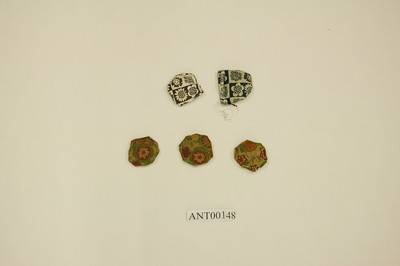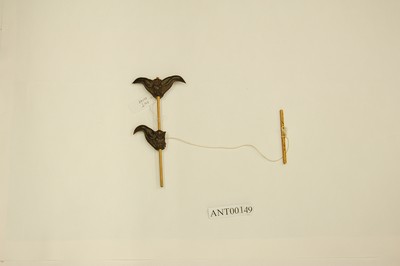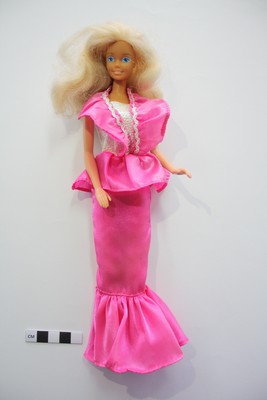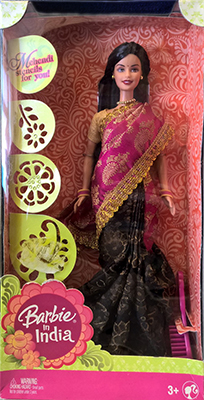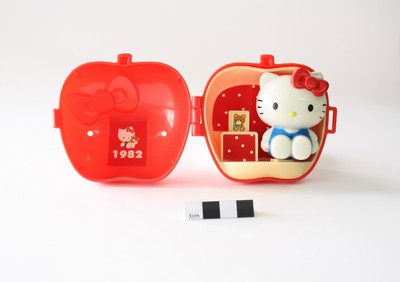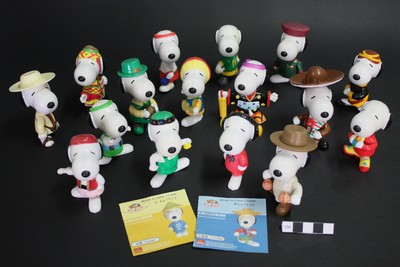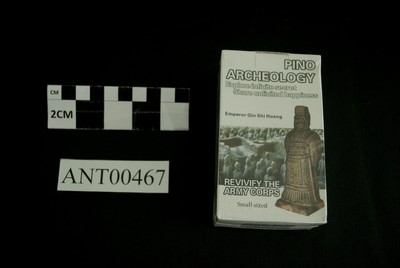Past Features (2016)
Text: Esther Chok
Edit: Prof. Maria Tam
Toys are commonly regarded as objects for children to play with, which help children to explore their relationships with the world, and train them in the skills they need as they grow up. To anthropologists, toys also carry rich cultural meanings. Toys reflect the perceptions of different societies on the nature of childhood and play―a perception about how children’s nature can be cultured. (Schwartzman 1978:9) They also reveal the economic, sociocultural, and technological transformations that a society has gone through. (Schwartzman 1978:9)
The variety of toys is large and highly diversified, ranging from miniatures of objects commonly seen in daily life (e.g. toy train), to distorted or imaginative ones beyond everyday experience (e.g. monster figures). (Sutton-Smith 1986:248,252) Many toys convey gender values, such as kitchen sets and dolls aimed at girls, while toy cars and guns are meant for boys. These toys socialize children of different sexes to behave and grow up in accordance with the gender expectations of society.
The possession of toys is related to ideas of consumption. They teach children meanings of buying and selling, and help them to learn "the materialistic culture habits". (Sutton-Smith 1986:2) In fact toys are not only consumed by children, but also by adults. Toys, in adult's collections, may acquire a different set of meanings. They may be collected for the purpose of investment or speculation, or for a nostalgic feeling that enables the owner to reconnect with the past through toys with the same leitmotif. (Bosco 2001:266; McVeigh 2000:225)
Under globalization, toys may be deterritorialized and reterritorialized, during which some original features of the toys are kept and new cultural elements are incorporated. This is done to promote the product in the new market, but simultaneously it may lead to challenges or integration of cultural meanings from the originating and the receiving societies.
The symbolic values and representations carried by toys are meaningful not only to the players themselves, but also to their societies and to anthropologists. As Sutton-Smith argued, "Toys, apparently the most minimal of our concerns, turn out to be intimately related to many larger cultural patterns in the family, technology, schools, and the marketplace." (1986:253)
文: 竺穎琛
編輯: 譚少薇教授
玩具一般被視為小孩玩耍的物件。它們幫助小孩探索世界,並訓練小孩獲得成長中需要的技能。對人類學者來說,玩具亦有豐富的文化意義。玩具能反映不同社會對童年及遊戲的看法,以及小孩應該如何被教化。(Schwartzman 1978:9) 除此之外,玩具的變化亦透視了社會在經濟、文化、及科技上所經歷的轉變。 (Schwartzman 1978:9)
玩具種類繁多,由日常物件的模型(例如模型火車),到偏離日常經驗的幻想 (例如怪獸玩偶) 。(Sutton-Smith 1986:248,252)很多玩具隱藏著有關性別價值的訊息,例如給女孩的廚房玩具和 玩偶,而給男孩的則是玩具車及玩具槍等等。這些玩具潛移默化地灌輸社會的性別價值觀予小孩。
玩具的擁有與消費主義有關。小孩在購買玩具的過程中學習買賣關係,並習得「物質文化習性」。(Sutton-Smith 1986:2) 事實上,收集玩具的不只是小孩,也有很多是成年人。玩具在成人的世界有另一套的意義:有些人是為了投資或投機而收集玩具,有些則是透過收集相同主題的玩具來緬懷過去。(Bosco 2001:266; McVeigh 2000:225)
在全球化的影響下,一些玩具會經歷「去領域化」及「再領域化」的過程。這些玩具會保留部分原有的特徵,同時加入新的文化元素。開拓新市場之餘,這個過程也為來源地與接收地帶來文化衝擊或融合。
玩具的象徵價值及表徵對玩家、社會、及人類學者均有不凡意義。正如Sutton-Smith所說:「玩具,表面上是微不足道,實際上卻與很多有關家庭、科技、學校、及市場經濟的文化模式密切相關。」(1986:253)
參考文獻
Bosco, Joseph. 2001. "The McDonald's Snoopy Craze in Hong Kong" in Gordon Mathews and Lui Tai-lok, eds. Consuming Hong Kong, pp. 263-285. Hong Kong: Hong Kong University Press.
McVeigh, Brian J. 2000. "How Hello Kitty Commodifies the Cute, Cool and Camp: 'Consumutopia' versus 'Control' in Japan." Journal of Material Culture 2000:225-245.
Schwartzman, Helen B. 1978. Transformations: The Anthropology of Children's Play. New York and London: Plenum Press.
Sutton-Smith, Brian. 1986. Toys as Culture. New York: Gardner Press.
展品

